ITI continued its long-standing collaborations and joint programs with the Commission on Science & Technology for Sustainable Development in the South (COMSATS), the World Association of Industrial and Technological Research Organization (WAITRO), the International Bamboo & Rattan Organization (INBAR), Norwegian Agency for Development Cooperation (NORAD), United States Agency for International Development (USAID), SIDA, United Nations Industrial Development Organization (UNIDO), Food and Agriculture Organization of the United Nations (FAO), International Development Research Centre (IDRC) Canada, Deutsche Gesellschaft für Internationale Zusammenarbeit (GIZ) German, United Nations Development Programme (UNDP), Yunnan University – China, International Centre for Chemical Biological Sciences (ICCBS), University of Karachi, International Crops Research Institute for the Semi-Arid Tropics (ICRISAT), University of Toledo, USA, Center of Environment, Fisheries and Aquaculture Science (Cefas), UK, International Atomic Energy Authority, International Finance Corporation (IFC), University of Sydney, Australia, Yunnan University, China, John Hopkins University (JHU), USA and the National Metrology Institute, Germany ((Physikalisch-Technische Bundesanstalt-PTB) and many others which have resulted in sharing of expertise and transferring knowledge among scientists.

COMSATS
ITI is the COMSATS - Centre of Excellence in Sri Lanka. As a member state, ITI is entitled for the benefits of participation in COMSATS international initiative, scientific projects & programmes, capacity building programmes, knowledge sharing and publications. ITI continued its long-standing collaborations, new collaborations and joint programmes via signing agreements between COMSATS University of Islamabad and International Center for Biological Sciences (ICCBS), University of Karachi, Pakistan in 2021.

Yunnan Rural Science and Technology Service Center
Ministry of Science and Technology of the People’s Republic of China formulates and facilitates the implementation of strategies and policies for innovation-driven development, and plans and policies for S&T development and the attraction of foreign talent.

WAITRO
ITI served as the focal point of the World Association of Industrial and Technological Research Organization (WAITRO) which is an independent, non-governmental association founded in 1970. WAITRO brings together science, technology, innovation stakeholders, R & D organizations, universities, on an international scale and provides a mechanism for its members to connect, partner, share, inspire and multiply their contribution to solve global challenges and contribute to the UN sustainable goals.

INBAR
The International Bamboo and Rattan Organization (INBAR) is the multilateral development organization for the promotion of bamboo and rattan. INBAR supports its members to include bamboo and rattan in their sustainable development action plans and green economic strategies. It promotes innovative ways of using bamboo and rattan to improve rural livelihood, protect the environment, address climate change and issues of international trades and standards.
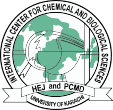
ICCBS
The International Center for Chemical and Biological Sciences (ICCBS) is one of premier research establishments in the developing world. ITI continued its long-standing collaborations, new collaborations and joint programmes by signing agreements between International Center for Biological Sciences (ICCBS), Pakistan.

CSTTC
China-South Asia Technology Transfer Center (CSTTC) is committed to promoting technology transfer cooperation between China and countries in South Asia, providing high-quality services and promoting innovation cooperation in the region.

CUI
COMSATS University Islamabad (CUI) started its journey in 1998, and established its first campus at Islamabad in April 1998. In August 2000, in recognition of CUI's achievements, the Federal Government granted it the status of a Degree Awarding Institute (DAI) through promulgation of its charter.

FAO
The Food and Agriculture Organization (FAO) is a specialized agency of the United Nations that leads international efforts to defeat hunger.

giz
GIZ (Deutsche Gesellschaft für Internationale Zusammenarbeit) offers clients a wide range of services, methodologies and approaches. ITI was funded for equipment to established organic testing facility and to serve organic agricultural stakeholders with accredited and internationally recognized analytical services through ITI.

UNDP
As the United Nations lead agency on international development, UNDP works in 170 countries and territories to eradicate poverty and reduce inequality. We help countries to develop policies, leadership skills, partnering abilities, institutional capabilities, and to build resilience to achieve the Sustainable Development Goals. Our work is concentrated in three focus areas; sustainable development, democratic governance and peace building, and climate and disaster resilience.

USAID
The United States Agency for International Development is an independent agency of the United States government that is primarily responsible for administering civilian foreign aid and development assistance. USAID Hort CRISP funded for a project on Biological based Postharvest quality maintenance and diseases control for Mango and Papaya.
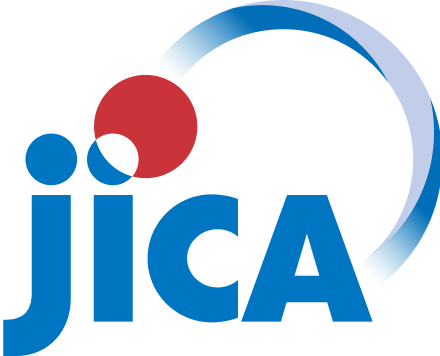
jica
JICA’s cooperation strategies (20) for global issues aim to show development impact/outcome for priority issues with “Cluster Strategy”, and to maximize development impacts/outcome by proactively working with partner governments and various actors.

ICRISAT
The International Crops Research Institute for the Semi-Arid Tropics (ICRISAT) is a non-profit, non-political organization that conducts agricultural research for development in Asia and sub-Saharan Africa with a wide array of partners throughout the world. Indo-Sri Lanka intergovernmental Research co-operation funded a research project on “Ensuring human health, food and nutritional security through novel cereal & fruit based prebiotics” which was completed successfully in 2016 by the Food Technology Section of ITI. The project was conducted in collaboration with ICRISAT.

IDRC
IDRC offers grants, funding, and awards to researchers and institutions to find solutions for global development challenges. “Enhancing preservation of fruits using Nanotechnology; Developing and Adopting new technologies to minimize postharvest losses in Sri Lanka” and its impact on Sustainable Development Goals. This project was an IDRC, Canada. The above project will help prevent postharvest fruit losses that affect millions of farmers around the world.

Johns Hopkins University, USA
Johns Hopkins University is a private research university in Baltimore, Maryland. Founded in 1876, Johns Hopkins was the first U.S. university based on the European research institution model. Johns Hopkins regularly ranks in the top 10 universities in the US, and is also competitive globally, especially for its undergraduate programs. Biotechnology Section (BTS) has initiated a contract project from the John Hopkins University (JHU) to process 400 serum samples which they have collected with collaboration of Negombo Hospital Centre for Clinical Management of Dengue and Dengue Haemorrhagic Fever (CCMDDHF) Unit.

UNIDO
The United Nations Industrial Development Organization is a specialized agency of the United Nations that assists countries in economic and industrial development. Upgrading Food / Herbal Pilot Plants and Establishment of Incubation Facilities at Modern R&D Complex, Industrial Technology Institute (ITI), Malabe to support Small and Medium Entrepreneurship (SME) Development in Sri Lanka

Cefas
The Centre for Environment, Fisheries and Aquaculture Science is an executive agency of the United Kingdom government Department for Environment, Food and Rural Affairs. It carries out a wide range of research, advisory, consultancy, monitoring and training activities for a large number of customers around the world. The Commonwealth Litter Program (CLiP) is being implemented in Sri Lanka as a grant program funded by the United Kingdom (UK) government through the UK Center of Environment, Fisheries and Aquaculture Science (Cefas), to develop actions to address plastics entering the oceans and to reduce marine litter, including the grant of laboratory equipment to ITI, Central Environment Authority (CEA), Marine Environment Protection Authority (MEPA), and National Aquatic Resources and Development Agency (NARA).

Uni. Sydney
The University of Sydney, also known as Sydney University, or informally Sydney Uni, is a public research university located in Sydney, Australia. Founded in 1850, it is the oldest university in Australia and is one of the country's six sandstone universities. A Project was started with University of Sydney, Australia and ITI, Sri Lanka on “Fruits and Vegetables for sustainable Healthy Diets (FRESH)” –Work Package 4: Postharvest and Inclusive Markets.
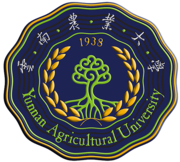
Yunnan Agricultural University
The University was initially established in Kunming in 1938 as the 'School of Agricultural' at Yunnan University. Separated from Yunnan University in 1958, the School of Agriculture was renamed 'Kunming Agriculture and Forestry College' (KAFC). The formal title, Yunnan Agricultural University, was adopted in 1971 because of the merger between KAFC and Yunnan Agriculture Working University (YAWU). It has been developed as a key university of Yunnan Province since 1993. Under the MOU signed with the Ministry of Science & Technology (MOST) China and the Ministry of Higher Education Research Sri Lanka and the framework agreement ITI signed with Yunnan Rural Science and Technology Service Center and Yunnan Agricultural University in Kunming in China
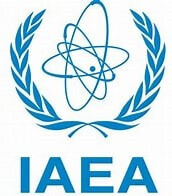
IAEA
Promoting Food Irradiation by Electron Beam and X Ray Technology to Enhance Food Safety, Security and Trade.

IFC
IFC is the largest global development institution focused on the private sector in developing countries. By encouraging growth, IFC advances economic development, creates jobs and improves the lives of people. IFC Grant - Expanding Ceylon Cinnamon Exports via Research, Development & Innovation for quality improvement
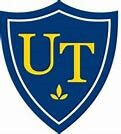
UT
The University of Toledo (UToledo or UT) is a public research university in Toledo, Ohio. It is the northernmost campus of the University System of Ohio.

ADB
ADB is committed to achieving a prosperous, inclusive, resilient, and sustainable Asia and the Pacific, while sustaining its efforts to eradicate extreme poverty. Established in 1966, it is owned by 68 members—49 from the region. A Gender Gap Assessment for the Industrial Technology Institute (ITI) was conducted under the Women Entrepreneurs Finance Initiative (We-Fi), a grant programme attached to the ADB‟s SME Line of Credit Project (SMELoC) in Sri Lanka. The assessment was conducted by Palladium, an advisory firm dedicated to building inclusive and prosperous local and global economies, with a focus on women‟s inclusion and promoting access to finance for women-led businesses.

Norad
The Norwegian Agency for Development Cooperation (Noard) is a professional body that grants funding to organisations within civil society, research, higher education and private sector development that work with partners in poor countries. Fish heads, viscera (gut) gills, skin and fins are discarded as fish waste. ITI and with the Norwegian Institute of Fisheries and Aquaculture Research under a NORAD funded project commenced a project to find methods to add value to fish waste. ITI researched on methods to add value to the waste depending on the quality and type of the waste. The advantages of manufacturing fish silage locally are many. The investment as well as the cost of production is very low. ITI has transferred this technology to the Beruwela harbour.